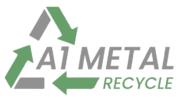In recent months, there’s been growing buzz among recyclers, contractors, and even backyard collectors: scrap metal prices in Sydney appear to be on the rise. Whether you’ve got a pile of old copper pipes, some rusting car parts, or a collection of aluminum cans, now might be one of the best times in recent years to cash in.
But what’s really going on with scrap prices? Is this just a short-term spike, or are we seeing a longer-term trend? In this blog, we’ll unpack current market conditions, what’s causing price increases, and what it all means for Sydneysiders looking to sell scrap.
Current Price Trends in Sydney
As of late 2025, scrap metal prices in Sydney have seen a notable increase, especially for non-ferrous metals like copper, brass, and aluminum. While prices fluctuate weekly, some metal categories have experienced double-digit percentage growth over the last quarter.
Here’s a general snapshot of current average prices (which vary slightly depending on the buyer and grade of material):
- Copper: $12–15 per kg
- Brass: $8–11 per kg
- Aluminum: $2.50–4.00 per kg
- Stainless Steel (316): $6–7 per kg
- Automotive Batteries: $6–8 per unit
- Steel (ferrous): $0.50–1.00 per kg
Compared to earlier this year, these numbers reflect a significant upward shift—particularly in the aluminum and battery categories, which have surged by over 40% in some places.
What’s Driving the Price Increase?
Several global and local factors are combining to push prices upward:
1. Global Demand for Metals
The global demand for metals like copper and aluminum is being fueled by a range of industries—from electronics and renewable energy to automotive and infrastructure development. Countries such as China and India continue to consume vast quantities of metal, keeping international prices buoyant.
2. Sustainability and Recycling Policies
With governments around the world—including Australia—placing increasing emphasis on sustainability, metal recycling has become more incentivized and better regulated. As a result, there’s growing demand for recycled materials as a cost-effective and environmentally friendly alternative to virgin metals.
3. Material Scarcity and Supply Chain Issues
Ongoing geopolitical tension, high shipping costs, and resource scarcity have made raw materials more expensive. Scrap metal, being immediately available and more affordable to process, is now more valuable than ever.
4. Local Construction and Renovation Boom
Sydney’s booming construction and renovation sector is also a factor. More building means more metal waste—and more demand for reclaimed metals. The high turnover of materials contributes to increased local buying activity.
5. Inflation and Currency Movements
Like most commodities, scrap metal is affected by inflation and currency shifts. A weaker Australian dollar against major global currencies makes locally sourced scrap more attractive to overseas buyers, increasing competition and pushing prices up.
Which Metals Are Gaining the Most?
While all scrap metals have seen moderate price improvements, non-ferrous metals are experiencing the biggest gains. Here’s why:
- Copper remains king. Its role in electric vehicles, electronics, and power infrastructure makes it extremely valuable. Prices have remained high despite short-term fluctuations.
- Aluminum is seeing increased use in lightweight manufacturing, renewable energy components (like solar panel frames), and beverage packaging.
- Brass and bronze are consistently sought after for plumbing, musical instruments, and art—keeping demand steady.
Ferrous metals (steel and iron) have seen less dramatic growth, though there are still decent rates for large volumes or high-grade materials.
What Does This Mean for You?
If you’re in Sydney and sitting on a pile of scrap, this may be a good time to act. Here are a few key takeaways:
1. Now Is a Good Time to Sell
If your metal is sorted, clean, and ready to go, you could fetch the highest prices seen in recent years, especially for copper and aluminum.
2. Timing Still Matters
Markets are volatile. Prices can swing week to week. Keeping an eye on market trends or calling local yards for quotes before making a run is a smart move.
3. Preparation Pays
Clean, sorted metal (e.g., stripped copper wire vs. insulated) always commands higher prices. Take time to remove contaminants or mixed materials.
4. Shop Around Locally
Not all scrap yards in Sydney pay the same. Prices can vary by as much as 10–20% between locations. Some also offer convenient services like pickups or bin drops for large quantities.
Challenges to Watch For
Despite the upward trend, the scrap metal market isn’t without risks:
- Sudden market corrections can occur, especially if international trade policies change.
- Storage and theft of high-value scrap (like copper) is a concern—especially on construction sites.
- Regulations in New South Wales prohibit cash payments for scrap, requiring sellers to provide identification and use traceable transactions. While this increases safety and transparency, it can be inconvenient for some casual sellers.
The Outlook: Will Prices Keep Rising?
Industry analysts suggest that prices—particularly for copper and aluminum—will remain strong through early 2026, thanks to continued infrastructure investment, green energy projects, and global demand.
However, no commodity market is immune to corrections. Prices may cool if supply chains ease or demand softens. Still, the long-term outlook remains optimistic, especially as recycling plays an ever-more important role in manufacturing.
Final Thoughts
So, are scrap metal prices in Sydney rising? Absolutely—especially for non-ferrous metals. Whether you’re an experienced scrapper or just someone with old appliances and wiring lying around, it’s a great time to clean up and cash in.
But as always in commodities, knowledge is your best asset. Stay informed, track prices, and build relationships with local buyers to get the best value for your metal.
Thinking of selling your scrap?
Get your materials sorted, check current prices, and don’t be afraid to negotiate. In today’s market, even yesterday’s trash could be tomorrow’s treasure.



